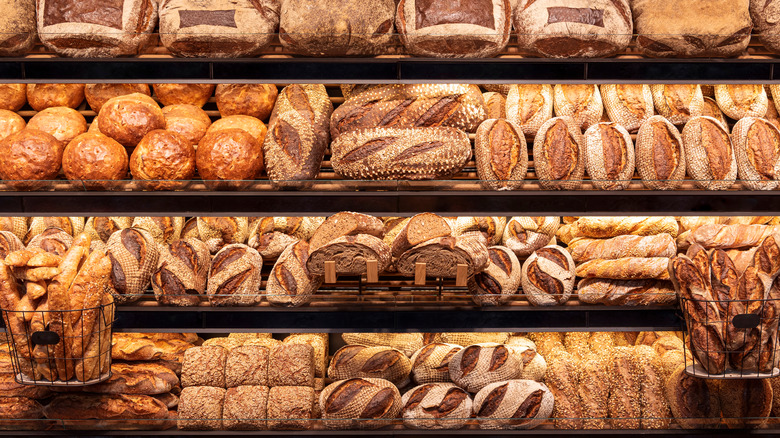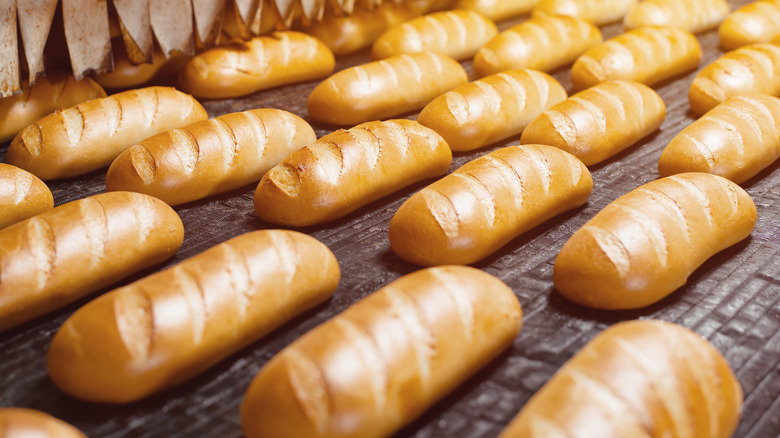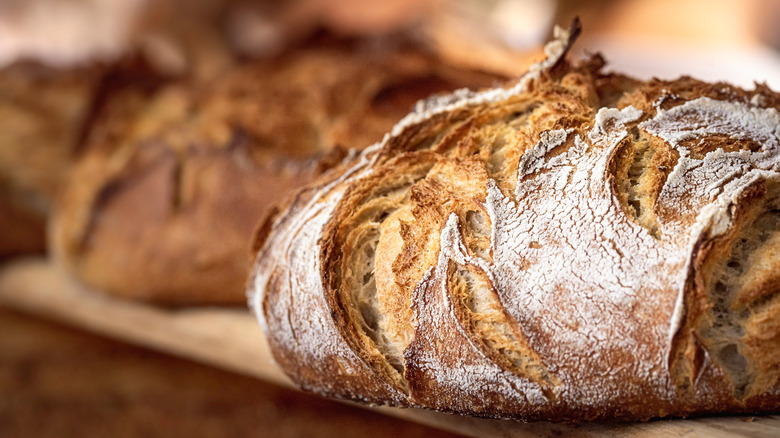The Clever Bakery Bread Hack That Guarantees Fresh Loaves In A Flash
When you walk into the bakery section of your local grocery store, its warm and inviting aroma will likely lead you to the loaves marked "baked in house" or "freshly baked." If you have a choice between fresh bread and not-as-fresh bread, you're going to gravitate towards fresh, right? But in fact, most of the "freshly baked" bread you find in your supermarket (and sometimes other bakeries) comes with a bit of trickery attached to it. Don't worry, it's not necessarily bad trickery — more of a helpful hack many bakeries employ that you may not be aware of. It turns out, the key to fresh dough is a freezer.
That fresh loaf or baguette you're buying is still technically freshly-baked; it may even still be warm if you snag it at just the right time. But before it was presented as fresh, it was most likely frozen, and before that, it was par-baked. Let's slice into what that means, and why this little-known bakery hack is ultimately a good thing.
Par-bake, freeze, then bake again
Par-baking is pretty much what it sounds like: cooking something only part of the way through. With bread, the dough is mixed, kneaded, proofed, then baked as usual — but it's taken out of the oven minutes before it's fully cooked. This bakes it long enough to expand and develop structure, but cuts it off from the process before it can brown and crisp.
At this point, the bread is quickly frozen to preserve its nearly-fresh state. In the case of many bakeries and grocery stores that order their bread par-baked, it's then shipped out with the expectation that the store will finish off the final bake. Freezing the bread at this point makes it easier and safer to ship, prevents mold from growing, and extends its overall shelf life. Once it arrives at the grocery store, all the bakery needs to do is pop the bread back into the oven to get it wonderfully brown, crusty, and fully baked — producing a warm, fresh loaf in a matter of minutes.
The advantages of par-baking
According to Wildgrain, par-baked bread can last up to a year frozen. Once it's re-baked, it's very close to bread that was baked in the conventional way. These are great attributes if you're a grocery store that has to continually produce large amounts of freshly-baked bread without the time or resources to make it from scratch. Par-baking makes the whole process easier and more efficient for the bakery, without sacrificing much quality for those of us taking the bread home. It's a win-win.
But you don't have to sell bread to reap the benefits of par-baking — it's also a great process to know about if you're just someone who likes to have fresh bread at home. You can buy bread in its par-baked or frozen stage at your grocery store or online and finish it off in your kitchen in just 20 minutes. You can also par-bake your own homemade bread and freeze it, so that you can enjoy freshly-baked loaves and rolls any time your heart desires.


